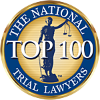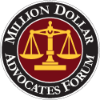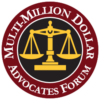Experienced Whistleblower Retaliation Lawyers
Putting you first by fighting for your protection from retaliation.
Putting you first by fighting for your protection from retaliation.
Should you put yourself at risk to do the right thing and blow the whistle on your employer’s fraud? Because of our experience, we can help you evaluate your possible risk and advise you as to the best course of action.
Fortunately, there are certain protections under the law that you are entitled to as a whistleblower. One of the most important of them has to do with your anonymity.
Everything you talk about with your whistleblower attorney is completely confidential. Once your attorney helps you file your initial complaint, that complaint will be “under seal” for at least 60 days. During this time, your identity is privileged information and is not allowed to be shared with anyone outside the case. While this anonymity will not last forever, you are permanently protected from retaliation by your employer for exercising your rights under the False Claims Act.
Under qui tam whistleblower law, you are protected from employer retaliation. If your employer retaliates anyway, you are likely entitled to additional compensation on top of any whistleblower reward.
Your employer may not do any of the following things to punish you for exposing their fraud:
Sometimes, qui tam whistleblower retaliation can be fairly subtle. For example, maybe you receive punishment for a minor infraction when your coworker is excused for the same infraction. This disparity in treatment might be proof of retaliation by itself. Your whistleblower retaliation attorney can help you determine how to fight back if your employer makes the mistake of retaliating.
Whether you’re a full-time employee or contractor, you are protected against employer retaliation. If you are fired or otherwise punished in retaliation for whistleblowing, you are likely entitled to compensation. In addition to up to double in back wages (plus interest), your attorney may be able to have you reinstated to your former position or seek other compensation to make you “whole” again, including attorney’s fees and the costs of litigation.
Tip: If you are retaliated against before you file a whistleblower lawsuit for considering such a suit, you may still be entitled to compensation.
When you file a lawsuit under the qui tam or whistleblower provision of the False Claims Act, in the Carolinas or anywhere else, you are protected from retaliation by your employer.
One whistleblower retaliation case from North Carolina that made national headlines centered on a massive fraud scandal at the University of North Carolina. UNC, which receives federal funding, had been enrolling student-athletes in classes that didn’t exist so that these athletes could keep their grades up and maintain eligibility. After Mary Willingham, an employee at UNC, exposed the scandal, she said she was retaliated against: demoted, given extra work, and publicly attacked for coming forward. She ultimately received $335,000 from the university to settle her retaliation claims.1, 3
A landmark South Carolina case that carved out significant protections for whistleblowers against retaliation was Ludwick vs. The Minute of Carolina, Inc. In that case, the South Carolina Supreme Court said that at-will employment does not mean an employer can fire an employee for whistleblowing. There is a public policy exception; as a society, we want to do everything we can to encourage whistleblowers to come forward. Firing a whistleblowing employee unjustly, even an at-will employee, violates this strong public policy.
The application of this policy can be seen in many whistleblower retaliation situations, such as when one employee of CMM Realty, Inc. — a Columbia-based management company — received a significant sum after the company fired him in retaliation.1 In short, the courts in South Carolina are pro-employee when it comes to protection against whistleblower retaliation.3
Will I face consequences for providing an attorney with confidential records?
No, so long as you take only what is reasonably necessary to establish your fraud claims. Even if your suspicions of fraud turn out to be inaccurate, your employer cannot hold you liable for sharing proprietary documents with your attorney and the government in good faith.
What if I might have been involved in the fraud?
Those who orchestrated the fraud scheme are the ones the government most wants to hold accountable. Even if you participated in the wrongdoing, you can still file a claim and receive a possible award. Were you forced to participate in the wrongdoing at management’s direction? However it happened, you’re stepping up now to do the right thing. And your inside access as a participant can make it possible to gather otherwise unobtainable evidence.
What if I’m wrong and my employer is not defrauding the government?
You will not face punishment externally for blowing the whistle in good faith. Internally, your employer may eventually become aware that you raised concerns about their behavior and processes. Even if you turned out to be wrong, your employer cannot retaliate against you for acting on reasonable suspicions. Public policy strongly favors protecting whistleblowers and those thinking of becoming whistleblowers.
Learn More: Famous Whistleblowers in History
There are many qui tam whistleblower protections and countermeasures available to good people looking to do the right thing and hold government fraudsters accountable. Contact us today for a confidential and free discussion, and we will let you know how we can help and all the steps we can take to protect you.
It’s understandable if you’re nervous. But we know how to protect you with the tool the law provides. We will only take your case if we think there’s a good chance of success, and we will use our decades of combined experience to guide you each step of the way, try to see that justice is done, and seek a maximum reward on your behalf. Only the first whistleblower is generally eligible for a reward, so contact us today at 1-888-292-8852!
“Bill has the ability to ‘think outside the box’…which makes him extremely effective as an advocate for his clients.” 1 — Attorney who previously worked with Bill






If you’re wondering if it’s a good idea to speak with a whistleblower lawyer about what you know, let us set the record straight.
"*" indicates required fields